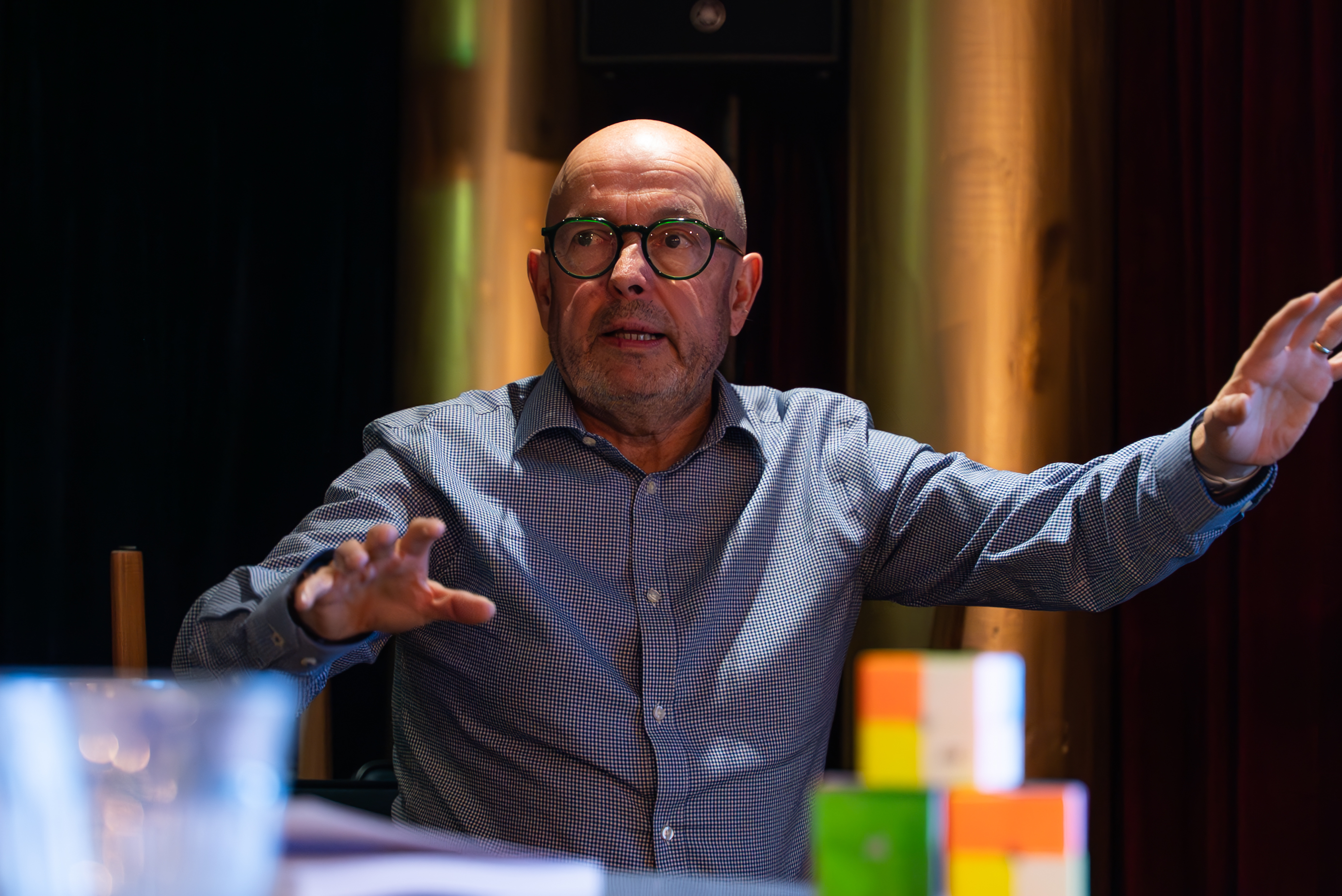What are the benefits of collaboration and teamwork in a business simulation?
By Ken Thompson, Oct 14, 2014 Last updated Jun 11, 2025
Collaboration is the action of working with someone to produce something, “co-labouring”. In the context of a business simulation this refers to colleagues working together in teams to produce a set of results.
Teamwork is the process of working collaboratively with a group of people, in this case the other delegates in the room, to achieve a goal. So once individuals have established collaborations with other people it takes a team to carry out the task at hand. Collaboration and teamwork therefore go hand in hand with each other. I am now going to explore the reasons why they are beneficial in a business simulation:
- Enables informal learning.
Delegates are able to learn from each other in an informal manner when they work in teams. This is especially true for business simulation games as it is a safe environment which allows teams to try things out, take risks and learn by making mistakes. When teams are in competition with each other it allows them to learn from each other’s successes and mistakes, through having debrief sessions and conversations with their colleagues. - Allows individuals to see their style as a team member.
Teamwork in business simulations allows delegates to see their styles as team members. For example do they focus on the data available, do they look at the bad points of decisions or the good points and are they a reactive thinker? It is very useful for delegates to see what sort of team player they are so they are conscious of their behaviour back in the workplace. It can also be a great insight for senior business people in assessing how their employees behave when teamed together. - Increases diversity.
Delegates are given the opportunity to work together with different types of people. This is especially useful when people from different departments in a company are put together to work collaboratively, as they can gain a greater insight into areas which they may not necessarily know much about or come across on a daily basis. Delegates are therefore able to learn as much from each other as they do from the simulation itself. For example if you have someone from a marketing background and someone from a finance background, their jobs are very different but by collaborating together they can gain information from each other which they may not already know. - Increases efficiency and productivity.
Each delegate will have their own specialities, strengths and weaknesses. Collaboration allows delegates to focus on what they do best so that the whole team can benefit. This allows teams to be more efficient and productive as individuals start to take on specific roles within the team. In a business simulation this could refer to various roles such as Finance Director, IT Director, Sales and Marketing Director and so on. - Enhances communication and social skills.
When given the opportunity to work in a team and collaborate with each other delegates are able learn to relate to their peers. Team members are given various opportunities to speak with their peers to agree on certain decisions and to share their knowledge. In a business simulation environment individuals are also given a chance to present their results and strategy to the rest of the room, allowing individuals to develop how they communicate to their colleagues, especially if this is to a senior business sponsor in the room. - Allows individuals to work towards a common goal.
By working in a team environment, individuals are able to achieve more through a collaborative effort, instead of going off on their own to only achieve their own personal objectives. When individuals collaborate and work together by making their own specific contributions they are able to share the outcomes/results together. These outcomes/results are often greater than what individuals can achieve by working independently of each other.
It is important to remember that collaboration and teamwork does come with its challenges, such as team members not communicating well with each other or having disagreements on decisions. In a business simulation it is down to the facilitator to steer the delegates’ conversations in the right direction and try to shut down conversations when they become too heated!
Need to build a High Performing Team in a short period of time? Consider reading our short White Paper; 'Instant Team: How to Create a High Performing Team in a Hurry'. Witness significant improvements in teamwork and collaboration using 3 simple ingredients and 4 steps.
If you would like to learn more about collaboration and how our business simulations & apps can be used to develop better collaboration skills within your organisation, take a moment look at our Collaborative Working resource.
